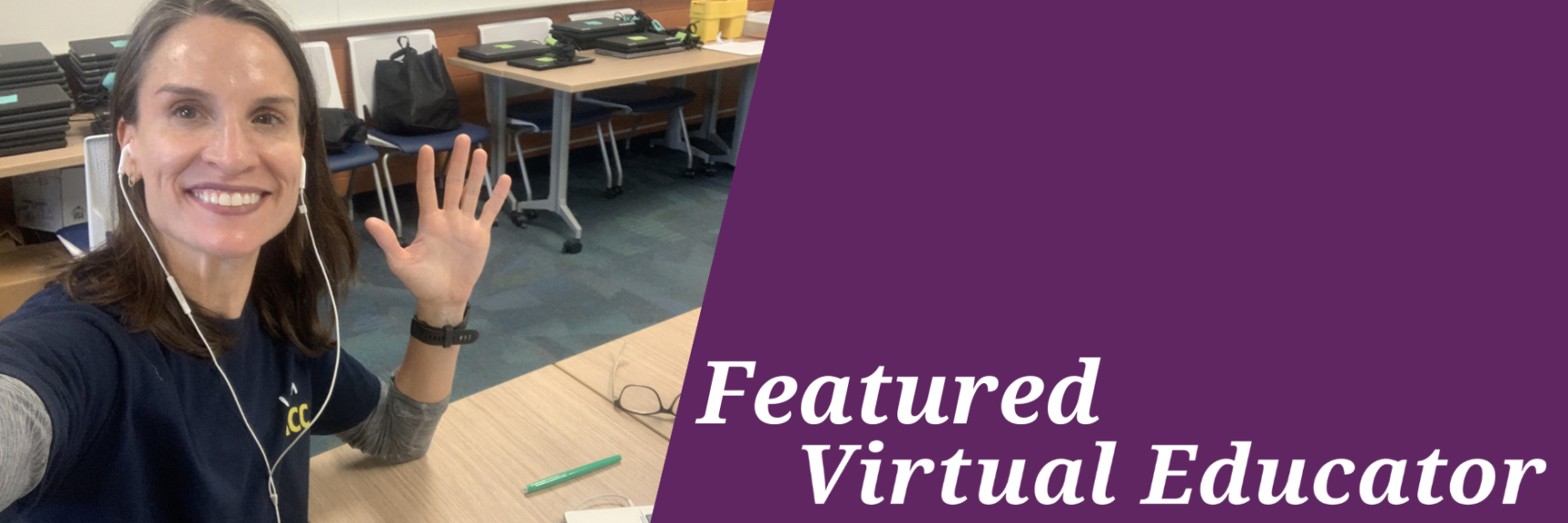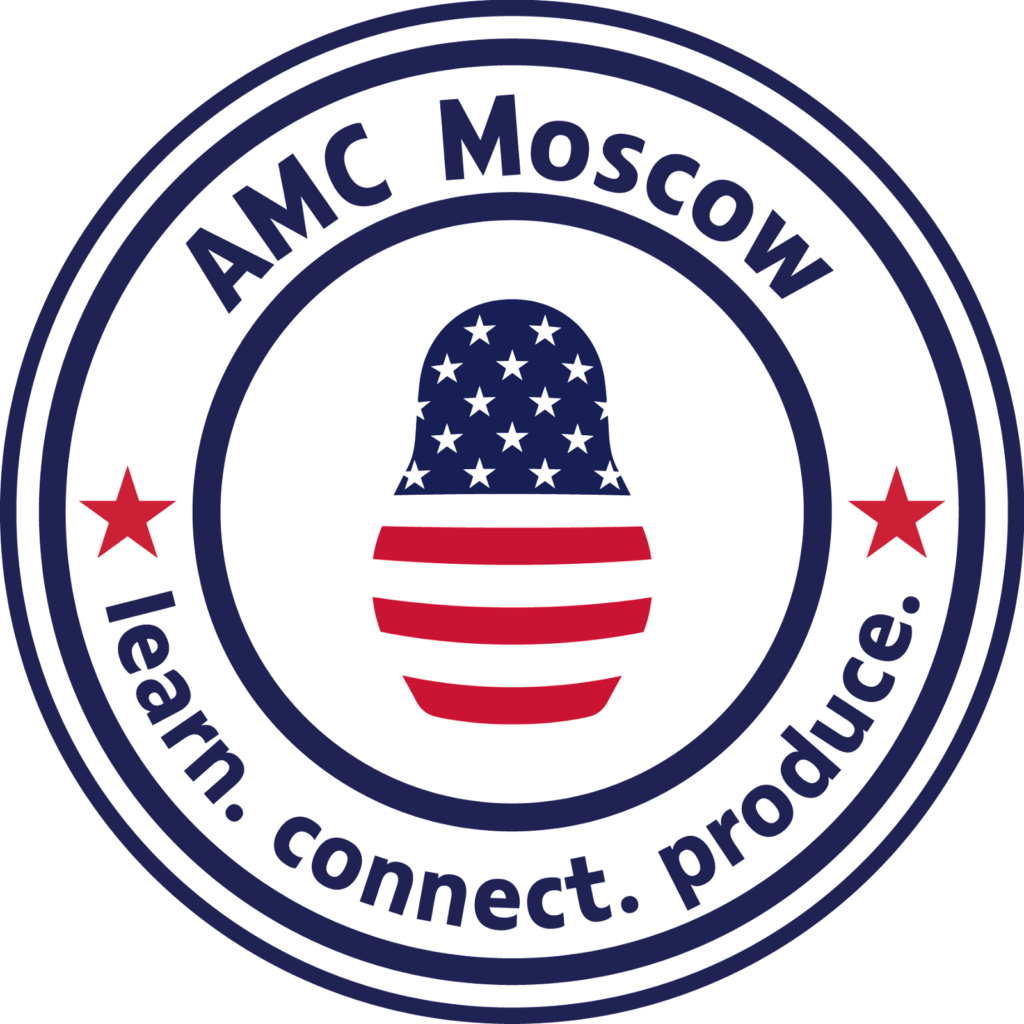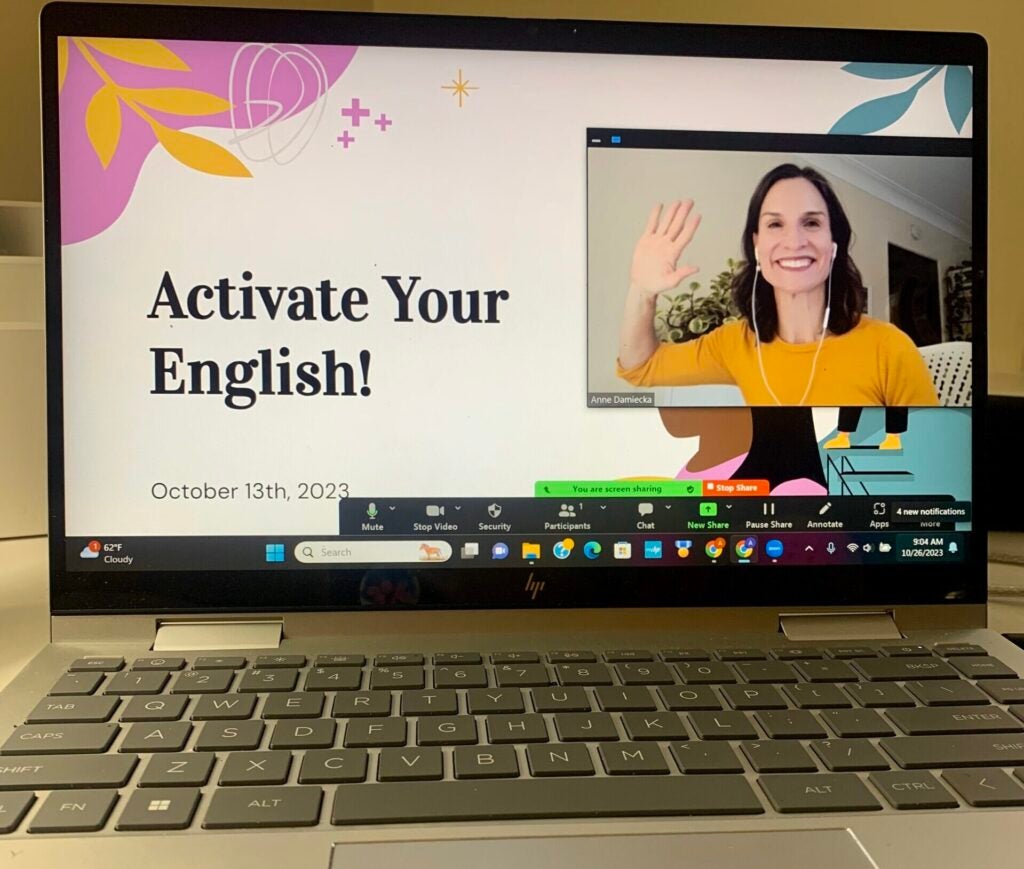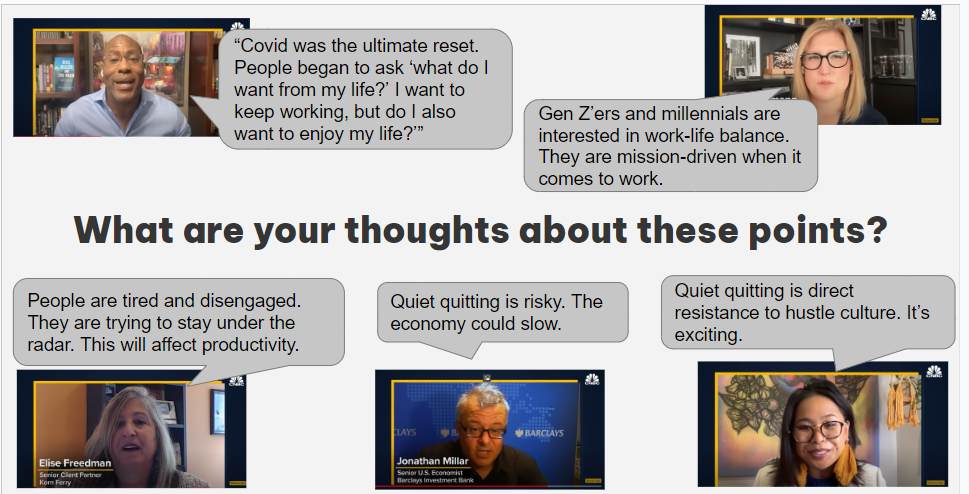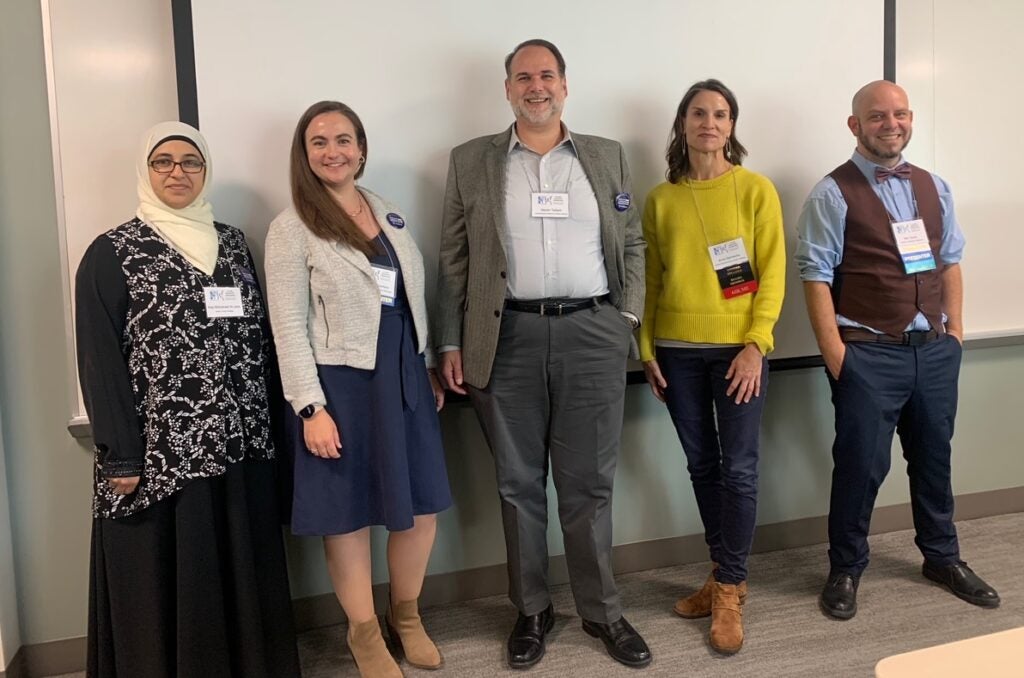My interest lies in applying TESOL methodology and best practices, particularly in instructional design and communicative approaches, across diverse contexts.
Heading into her Virtual Educator project with teacher-learners from Russia, Anne Damiecka brought a wealth of prior experience. For over twenty years she’s worked across the educational spectrum from college to corporate and also with agencies that coordinate refugee resettlement. These varied experiences have included working with learners from the pre-literate level up to advanced-level professionals. “I feel that the ability to work in a variety of contexts stimulates professional growth through the cross-current of ideas, challenges, and innovation,” Damiecka says.
When offered the opportunity to teach English online to learners from Russia, she knew she was being offered a unique chance and was excited to begin a new role. As a Virtual Educator, she would have the chance to play a small—but important—part in continuing people-to-people dialogue in a high-interest environment.
This three-month project in partnership with the American Center in Moscow began in spring 2023 and was offered to Russian English language teachers. The course series, titled “Activate Your English,” was such a success that it was renewed for the fall. At the time of publication, Damiecka continues to challenge—and be challenged by—her learners, who have advanced-level knowledge of and ability to communicate in English.
Bringing in Expert Voices and Challenging Perspectives
The challenge with the virtual, synchronous medium is to make it dynamic and interactive for all participants.
In order to promote participation and discussion during synchronous online lessons, Damiecka knew that content selection was key to facilitating engaging lessons. To achieve this, she decided to bring in expert voices. These were not guest speakers, but rather a curated selection of video clips featuring a variety of notable voices giving their explanations and opinions on a myriad of timely topics that were relevant to both the teachers’ personal and their professional lives.
The lessons in this format followed a structured approach that included an interactive task to activate prior knowledge and frontload vocabulary. Using generative AI platforms, Damiecka was able to source definitions with example sentences of relevant terms, and although she was pleased with the results, when relaying her experience, she was not shy to note that the best conversation questions were generated by herself.
As each lesson in the series has included up to 50 participants, whole group discussion is used in moderation to build classroom cohesion and community. Extensive use is made of small group discussions to increase speaking opportunities and to create a more comfortable environment in which to openly discuss each topic.
Memorable Moments and Shared Experience with a Special Guest
What has really stood out to me is how relatable many of our experiences are.
Some of the most memorable classroom moments have resulted because of high interest in the discussion topics, which have included imposter syndrome, having empathy towards others, quiet quitting, art and technology, and AI in education. During one lesson, they discussed how people experience and cope with uncomfortable situations. This session dispelled one of Damiecka’s own preconceived notions, as she had expected to find more cultural differences between her experience of social discomfort and those of her Russian learners. Instead, what she found was that they all shared a similar feeling of discomfort when, for example, you say goodbye to another person and then both of you happen to walk off in the same direction. Damiecka fondly recalls one of the learners summing up the lesson beautifully by noting that “being awkward is what it means to be human.”
Damiecka and her fellow Virtual Educators and English Language Specialists had the distinct privilege of welcoming the U.S. Ambassador to the Russian Federation Lynne Tracy shortly after her diplomatic appointment began. The Ambassador’s talk centered on the important role of Virtual Educator and Specialist projects in fostering positive connections among people from both countries.
Through conversation and cultural exchange, Damiecka hopes to represent U.S. culture and its shared values of openness, diversity, and freedom of expression. In return, she values the curiosity and perspectives of her English–teacher learners and “their sincere and critical (in a positive sense) approach to exploring a range of current topics.”
Bringing it Back to the Great Lake State
One of the things I have enjoyed most about the Virtual Educator Program is how access to high-quality professional development opportunities is woven throughout the experience.
Through the pre-project program orientation and a selection of online events, Damiecka has been able to access professional development resources and network with other Virtual Educators who have English teaching projects around the world. “I love being surrounded by teachers who are at the forefront of the field,” she says.
In turn, she has been able to bring fresh ideas to her learners, who are also English teachers. It is the totality of these experiences that filters back to her home community in the United States.
After moving to Michigan three years ago, Damiecka became involved with the local English language teaching community through Michigan Teachers of English to Speakers of Other Languages (MITESOL) and became a board member. This fall, she was instrumental in welcoming English Language Programs to the MITESOL Annual Conference and sharing with other U.S.-based teachers her experiences as a Virtual Educator. “Putting on the conference is a lot of work, but it is an invaluable experience because it has allowed me to connect with so many dedicated and inspiring professionals in Michigan,” she says.
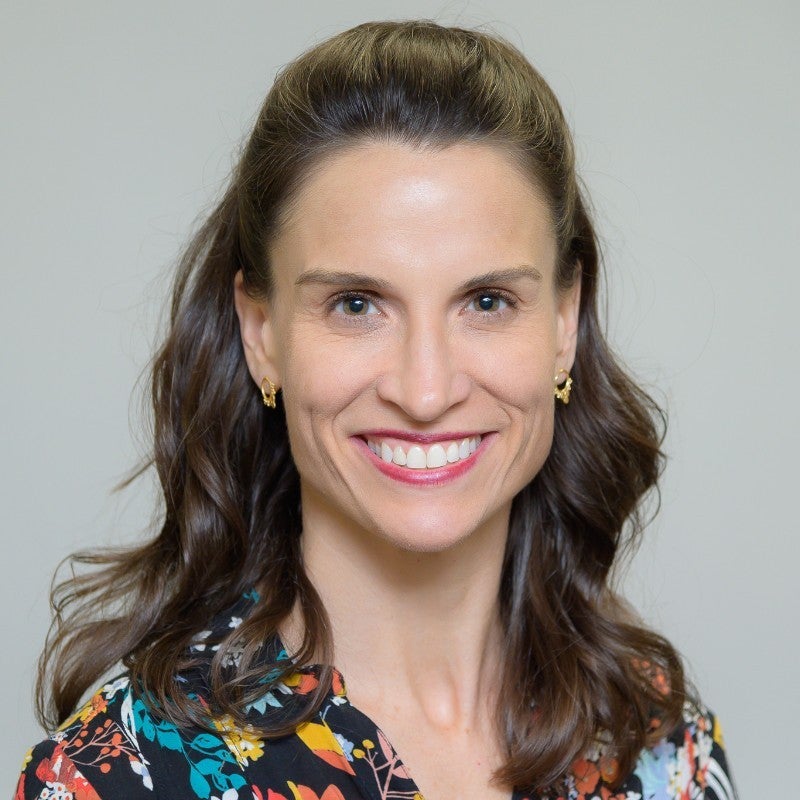
In addition to working as a Virtual Educator, Anne Damiecka is Lead Instructor in the Adult Education ESL program and an adjunct faculty member at Grand Rapids Community College in Grand Rapids, Michigan. She holds a master’s degree in linguistics from the University of Surrey and taught EFL in Poland for six years before moving to Houston, Texas, where she was Professor and Lead Faculty of ESOL at Lone Star College for 12 years. She has worked as a TEFL trainer and a CELTA trainer and has served on the boards of MITESOL and TexTESOL IV as well as on the Conferences Professional Council for TESOL International.

